The coalition government gave a strong signal that it will ditch the Clean Energy Target (CET), with Energy Minister Josh Frydenberg saying that the electricity sector is looking for stability and “not necessarily handouts”.
The statement, made on Day One of an Energy Summit organised by the Australian Financial Review, is being perceived as a clear signal that the government will stop or scale back on renewable energy subsidies when the Renewable Energy Target period runs out in 2020.
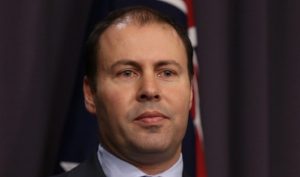
It seems that the coalition is alone in thinking that a CET is not needed, ignoring advice from Chief Scientist Alan Finkel, AEMO Chief Audrey Zibelman, AGL Chief Andy Vesey and practically every other speaker at the summit.
Mr Frydenberg said that the cost of renewable energy is dropping substantially and rapidly in the current scenario and that is also bringing with it a fall in emissions.
He also said that emissions as a result of energy generation had fallen over the past two quarters as a result of the closure of coal-fired plants and “flatlining demand”.
“However, this transition to lower emissions cannot come at the expense of the reliability and affordability of our electricity system,” Mr Frydenberg told a forum in Sydney.
The Clean Energy Target was the most crucial of 50 recommendations to fix the security of supply, reliability, and affordability in Chief Government Scientist Alan Finkels’ Review of the Energy Market. The other 49 were adopted without question.
However, backbench resistance led by former Prime Minister Tony Abbott led to the CET being shelved with the coalition not excluding a new mechanism to include coal. The Nationals also passed a motion at their federal conference last month demanding any such scheme not go ahead.
The CET would extend a scheme similar to the current Renewable Energy Target by pricing different types of electricity generation based on their carbon emissions.
Mr Frydenberg did not specifically say that the CET was going out of the window, but said: “It is against this backdrop of a declining cost curve for renewables and storage, greater efficiencies that can be found in thermal generation and the need for sufficient dispatchable power in the system that we are considering the Finkel Review’s 50th recommendation to which we’ll respond before the end of the year.”
“Globally in the past seven years, the cost of wind-powered generation has more than halved. “Domestically, solar PV costs have dropped more than 50 percent. “By 2020, costs of battery technologies are expected to fall 40 to 60 percent and over 70 percent to 2030.”
Prime Minister leaves door ajar for CET
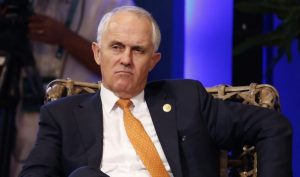
Prime Minister Malcolm Turnbull also addressed the Summit and left the door to some form of scheme similar to the CET ajar. Mr Turnbull said: “What we are determined to do is to ensure that energy is reliable, affordable and that we meet our emissions reduction commitments that we have made through the Paris agreement.”
Mr Finkel, however, was emphatic in his point that falling costs for renewables meant that a CET was no longer needed.
Speaking to the AFR summit, the chief scientist dismissed the point that the falling cost of renewables meant a clean energy target was no longer required.
Chief Scientist defends CET to the hilt
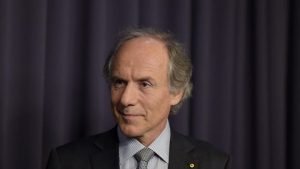
Mr Finkel said that the CET was primarily a framework allowing an orderly transition away from carbon-intensive power sources to low-emissions power sources.
“It remains a useful tool even if there is an extreme rate of reduction in the price of the new technologies,” Finkel said. “You need a managed transition.”
Dubbing his review “50 Shades of Finkel”, the Chief Scientist said that if the CET was adopted, the current energy crisis could be solved within three years. “Three years from now we expect a full recovery of the energy market.
Just going back to coal is not the solution. The revolution is underway, and cannot be stopped,” he said.
CET is a useful mechanism – AEMO Chief

Australian Energy Market Operator CEO Audrey Zibelman also addressed the summit and said the change in investment was already underway, driven by the surge in investment in commercial-scale wind and solar facilities and rooftop solar and batteries for households.
But she said a CET was a useful mechanism to signal to investors and provide some clarity on how the country would meet its Paris targets.
“We are seeing the change already … we are looking at how to manage those changes,” Ms Zibelman said
Labor Leader offers olive branch on CET
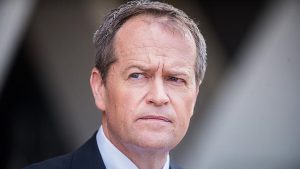
Labor Leader Bill Shorten appeared to offer an olive branch to the coalition, calling for a truce in the decade-long climate wars.
Mr Shorten said it was “troubling” to see signals from the government that they intended to dump the clean energy target.
“Walking away is the worst possible option. It would leave investors in the lurch, sentence business to more uncertainty and more chopping and changing, making Australia’s job harder to reduce emissions.”
“If Turnbull caves into Tony Abbott and a … rump of conservative backbenchers and walks away from a clean energy target, it will mean continued higher prices for Australian families and Australian industry.
AGL has not lost sight of affordability issue

Gas Giant AGL’s Chief Andy Vesey also addressed the Summit and said that the company has not “lost sight” of the energy affordability issue, warning that if the process of transition to renewables is not handled correctly, it will “hurt consumers”.
“We do have a real issue – and it’s not only about January 1 2023 when Liddell is gone – it’s about energy prices today,” he said.
He also said AGL – which has repeatedly stated that it is getting out of coal – believed the idea of a clean energy target as a “transition mechanism” was important, but noted that it was “indifferent to the intensity” of that target.
However, Mr Vesey also said it was important to correctly handle the move towards renewables.
“We are in this transition and it is about transition,” he said. “There’s absolute agreement on the endpoint – it’s the transition that has to be managed. And if not managed correctly… (it) will hurt consumers and will hurt participants in the market.”
SA Premier wants states to set up their own energy market
South Australia Premier Jay Weatherill again used his battle cry for states to band together and sort out the crisis without the Federal Government, saying that Mr Frydenberg’s comments showed there was “no political will” to fix the energy market from Canberra.
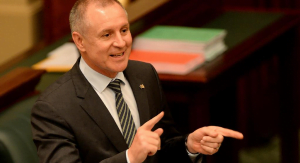
He said the federal government should “simply get out of the way”, and called for the states to work together to negotiate their own national market with one independent oversight body which he said could operate at arms-length from government.
Weatherill said he’d spoken to each other state premier and territory chief minister and said they were “supportive or open” to the states taking the lead on introducing some kind of energy target.
New South Wales energy minister, Don Harwin, called Weatherill’s solution “very much a second-best option”.
“NSW has consistently stated that all options should be on the table and we shouldn’t let the perfect be the enemy of the good,” he said.
“We’ve deliberately not boxed in the federal government and will consider whatever they come back to us with.
He said renewable energy didn’t need subsidies but did need “certainty”, arguing for the removal of “sporadic and haphazard government intervention” which “does nothing to boost confidence and does everything to increase doubt”.













